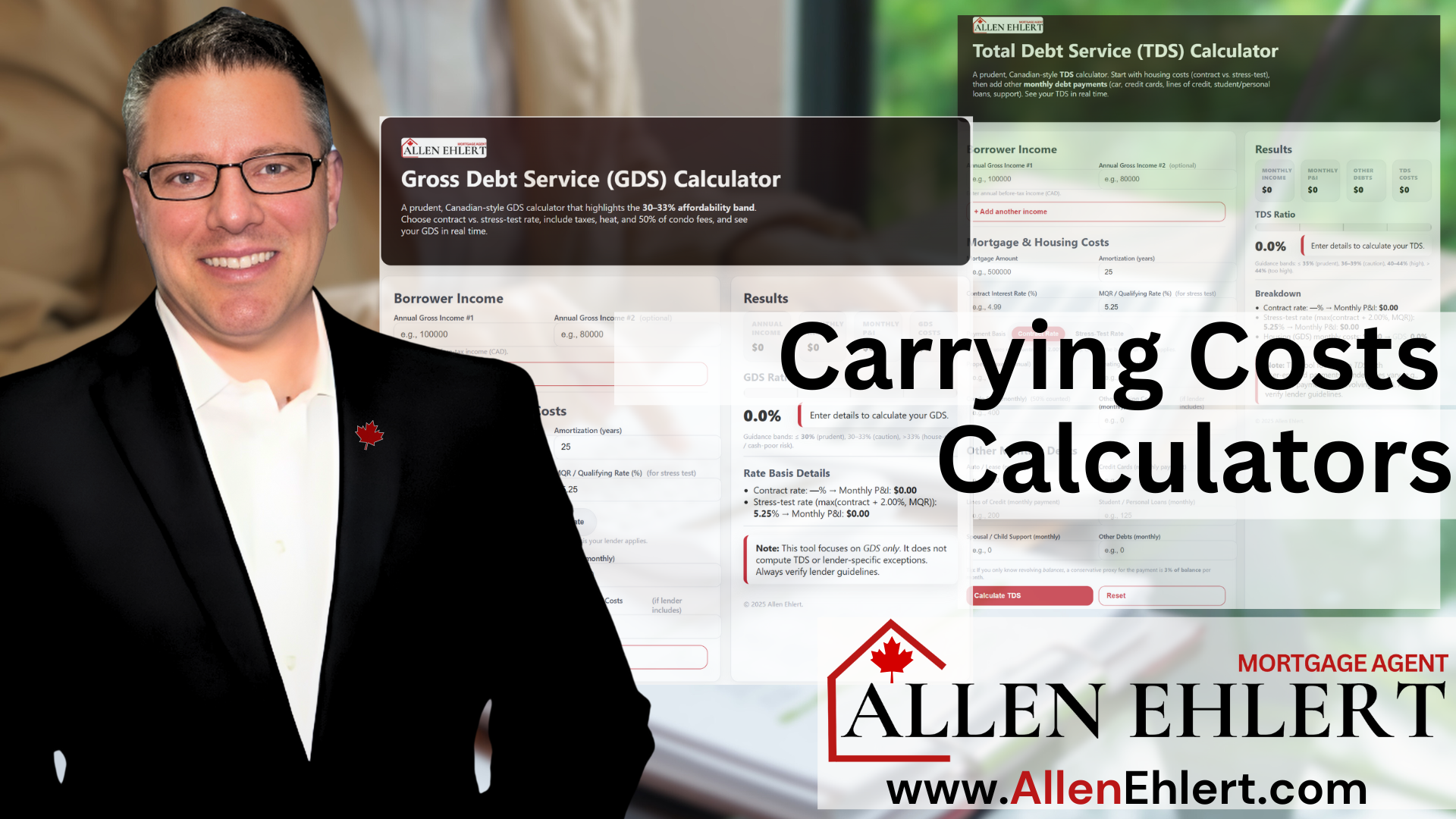Your credit score is a crucial factor in your financial health and creditworthiness. But the world of credit scores can also be filled with misconceptions that can misguide your decisions. Today, we’ll debunk some of the most common credit score myths to help you better understand how your credit score really works. Let’s get started!
Imagine you’re planning a road trip across Canada. You’ve been saving up for months and finally have enough money to cover all your expenses. Excitedly, you head to the car rental agency to pick up your dream car for the journey.
As you present your driver’s license and credit card, the rental agent looks at your credit score and hesitates. She informs you that your credit score is not high enough to rent the car. Shocked and confused, you inquire about why your credit score matters for a rental car.
The agent explains that your credit score reflects your creditworthiness, which indicates how responsible you are with credit. A high credit score assures lenders and institutions that you are likely to repay your debts on time. It represents your financial health and can influence their decisions when you apply for loans, mortgages, or even rental contracts.
Disappointed, you realize that your credit score plays a significant role in various aspects of your life. But then, you remember a friend mentioning that using your credit cards frequently won’t affect your credit score as long as you pay them off each month. Curiosity piqued, you start to wonder if there are more credit score myths you’ve been believing.
Thankfully, we’re here to debunk the top credit score myths and provide you with the accurate information you need to make informed financial decisions. Let’s dive into these myths and discover the truth behind them.
Key Takeaways:
- Approaching your credit limit can negatively impact your credit scores.
- You can dispute items on your credit report if you find inaccuracies or incomplete information.
- Closing a paid-off account may not necessarily improve your credit scores.
- There is no universal credit score, and credit scoring models may differ among credit bureaus.
- Checking your credit score or obtaining your credit report does not negatively impact your credit score.
Myth 1: Approaching your credit limit doesn’t impact credit scores
Contrary to popular belief, approaching your credit limit can negatively impact your credit scores. Even if you pay off your credit cards every month, a high credit utilization ratio can still have an impact.
Credit utilization ratio represents how much revolving credit you’re using compared to the total amount available to you. This ratio is an important factor in credit scoring models, which are used to calculate credit scores.
“A high credit utilization ratio suggests to lenders that you are relying heavily on your available credit, which can indicate potential financial strain,” says Equifax, one of Canada’s leading credit bureaus.
It’s important to understand that different credit scoring models may calculate credit scores differently. While some may prioritize credit utilization, others may take into account additional factors such as payment history and length of credit history.
To maintain a healthy credit score, it’s generally recommended to keep your credit utilization ratio below 30%. This means using no more than 30% of your total credit limit across all your credit cards and lines of credit.
How credit utilization impacts your credit scores
An excessively high credit utilization ratio can be seen as a potential risk to lenders. Here’s a breakdown of how different credit utilization ratios may affect your credit scores:
| Credit Utilization Ratio | Impact on Credit Scores |
|---|---|
| Below 30% | Generally positive impact on credit scores |
| 30% to 50% | Neutral impact on credit scores |
| Above 50% | Negative impact on credit scores |
- Utilizing a lower percentage of your available credit shows responsible borrowing and can potentially improve your credit scores.
- Using a higher percentage of your available credit may indicate a higher risk and result in lower credit scores.
Understanding the impact of approaching your credit limit and managing your credit utilization ratio can help you make informed decisions about your borrowing habits and improve your overall credit health.

Myth 2: You can’t dispute items on your credit report
Don’t believe the myth that you can’t dispute items on your Equifax credit report. If you come across inaccurate or incomplete information on your credit report, you have options to address them.
First, you can reach out to the lender or creditor directly to discuss and correct any discrepancies. It’s essential to provide them with any relevant supporting documentation or evidence to support your dispute. By working directly with the source of the information, you have the opportunity to clarify misunderstandings and rectify any mistakes.
If the lender or creditor is unresponsive or unwilling to address the issue, you can file a dispute with Equifax or the credit bureau that provided your credit report. Equifax is one of the major credit bureaus in Canada, along with Experian and TransUnion. These bureaus collect and maintain credit data, allowing lenders and creditors to make informed decisions about your creditworthiness.
Remember, it’s your right to ensure the accuracy and integrity of your credit report. Disputing inaccurate information is essential for maintaining a fair and reliable credit system.
When filing a dispute, provide detailed explanations of the inaccurate or incomplete information and include any supporting documents to strengthen your case. Equifax and other credit bureaus have dedicated processes in place to handle disputes and investigate the matter. They will review the information provided by both parties and make any necessary updates or corrections to your credit report.
By resolving inaccuracies on your credit report, you’re taking steps to protect your creditworthiness and financial well-being. It’s crucial to regularly review your credit report and address any discrepancies promptly. Maintaining an accurate credit history is vital, as it affects your ability to secure loans, mortgages, and other financial opportunities.
Why Disputing Inaccurate Information Matters
Disputing inaccurate information on your credit report is essential for several reasons:
- Improving your credit score: Removing inaccurate negative items from your credit report can positively impact your credit score, making it easier for you to qualify for better interest rates and loan terms in the future.
- Ensuring fair lending practices: By identifying and disputing inaccurate information, you contribute to the fairness and integrity of the credit reporting system. This process helps to ensure that lenders and creditors have reliable information to assess your creditworthiness accurately.
- Protecting your identity: If you notice unfamiliar accounts or inquiries on your credit report, it could be an indication of identity theft. By disputing these items, you take proactive steps to safeguard your identity and financial well-being.
Take Control of Your Credit Report
Don’t let the myth of undisputable credit reports hold you back. Understand your rights and take control of your Equifax credit report. Regularly monitor your credit and promptly address any inaccuracies or discrepancies you come across. By doing so, you can ensure your credit history truly reflects your financial behavior and improve your overall creditworthiness.
| Benefits of Disputing Inaccurate Information on Your Credit Report | Actions to Take |
|---|---|
| Improving your credit score | Regularly review your credit report File a dispute with the lender, creditor, or credit bureau if inaccuracies are found Provide supporting documentations to strengthen your case |
| Ensuring fair lending practices | Contribute to the fairness and integrity of the credit reporting system by disputing inaccurate information Help lenders and creditors make informed decisions based on reliable credit data |
| Protecting your identity | Monitor your credit report for any unfamiliar accounts or inquiries Dispute unauthorized items to safeguard your identity and financial well-being |
Myth 3: Closing a paid-off account improves credit scores
Closing a paid-off credit card account may not necessarily improve your credit scores. In fact, it can impact your credit utilization rate, which is the amount of credit you’re currently using compared to the amount available to you. It’s important to understand that credit scoring models consider various factors when calculating your credit scores.
While paying off an account shows responsible financial behavior, closing it can potentially reduce the total amount of credit available to you, resulting in a higher credit utilization rate. This could negatively affect your credit scores, as lenders view a high credit utilization ratio as a sign of increased credit risk.
Additionally, credit scoring models may also consider the average age of your credit accounts and the age of your oldest credit account. Closing an old credit card account can shorten the average age of your accounts, which may have a negative impact on your credit scores.
It’s important to note that this myth specifically applies to revolving credit accounts, such as credit cards. For installment loans, like mortgages or car loans, paying them off and closing the account can have a positive impact on your credit scores.
Also Read:
- How Do Credit Scores Work
- How Do Credit Cards Work
- Credit Card Rewards. Who Pays?
- Credit Score and Your Mortgage
- Hard vs Soft Credit Pull
Myth 4: There is a universal credit score
Contrary to popular belief, there is no universal credit score. Different credit bureaus, such as Equifax, Experian, and TransUnion, may calculate credit scores differently. Each credit bureau utilizes its own proprietary algorithms and data to determine creditworthiness. This means that your credit scores may vary among the different credit bureaus, as they consider various factors and weight them differently.
It’s important to understand that credit scores are not a static number and can fluctuate based on updated information received by the credit bureaus. Lenders and creditors can report data to one, two, or even all three of these credit bureaus, which can further contribute to score variation. This is why monitoring your credit reports from all three bureaus is crucial for maintaining accurate and up-to-date financial information.
Here’s an overview of the three major credit bureaus:
| Credit Bureau | Key Information |
|---|---|
| Equifax | One of the largest credit bureaus in Canada and provides credit scores and reports to individuals and businesses. |
| Experian | A global leader in consumer and business credit reporting, offering credit scores and credit reports to help individuals and businesses make informed financial decisions. |
| TransUnion | Another prominent credit bureau that provides credit scores and reports to consumers and businesses. They also offer various credit monitoring services. |
By understanding the differences between these credit bureaus and the potential variation in credit scores, you can make more informed decisions about your financial health. It’s advisable to regularly check your credit reports from all three bureaus to ensure accuracy and identify any discrepancies that may impact your creditworthiness.

Myth 5: Checking your credit hurts your score
Contrary to popular belief, checking your credit score or obtaining your credit report does not negatively impact your credit score. In fact, it’s a good habit to regularly check your credit to stay informed about your credit position and ensure accuracy. By monitoring your credit, you can spot any inaccuracies or potential issues that may affect your creditworthiness.
However, it’s important to note that applying for new lines of credit, which involves a hard credit check, can potentially impact your credit score. A hard credit check occurs when a lender or creditor reviews your credit report as part of the application process. Each hard credit check leaves a footprint on your credit history, and multiple inquiries within a short period can raise concerns about your creditworthiness.
When you check your own credit or obtain your credit report, it’s considered a soft credit check, also known as a soft inquiry. Soft inquiries do not impact your credit score because they are only visible to you when reviewing your credit. Soft credit checks are for informational purposes and allow you to stay proactive in managing and maintaining your credit health.
Why are hard credit checks significant?
Hard credit checks are significant because they indicate that you are actively seeking new credit, which could mean that you are taking on additional debt. Lenders may interpret multiple hard inquiries as a sign of financial instability or an increased risk of defaulting on your loans. As a result, multiple hard inquiries within a short period can lower your credit score as they are seen as a potential red flag by lenders.
To ensure that hard credit checks have minimal impact on your credit score, it’s essential to be mindful of how frequently you initiate them. Only apply for credit when it is necessary and avoid making multiple credit applications simultaneously. Instead, consider researching and comparing offers to find the best fit for your financial needs before submitting your applications.
| Credit Bureau | Impact of Hard Credit Checks |
|---|---|
| Equifax | Hard inquiries are visible on your Equifax credit report and can affect your Equifax credit score. |
| TransUnion | TransUnion considers hard inquiries when calculating your TransUnion credit score. Multiple hard inquiries can have a negative impact. |
By understanding the distinction between soft and hard credit checks, as well as their potential impact, you can make informed decisions about when and how to check your credit. Regularly monitoring your credit and being mindful of hard credit checks can help you maintain a healthy credit score and improve your overall creditworthiness.
Conclusion
To improve your creditworthiness and maintain good financial health, it is crucial to separate credit score myths from facts. Understanding the truth behind these misconceptions can help you make informed decisions about your credit. Firstly, approaching your credit limit can indeed have an impact on your credit scores, even if you pay off your cards every month. It is important to manage your credit utilization ratio and avoid maxing out your cards.
Secondly, debunking the myth that you can’t dispute items on your credit report is essential. If you find inaccurate or incomplete information, you have the right to contact the lender or creditor directly and file a dispute with the credit bureau. Taking action can help ensure the accuracy of your credit report.
Additionally, closing a paid-off account may not necessarily improve your credit scores, as it can affect your credit utilization rate and the age of your credit accounts. It’s important to consider the impact of closing revolving credit accounts versus installment loans. Understanding these nuances will prevent any unintended negative effects on your credit.
Finally, it’s crucial to recognize that there is no universal credit score. Different credit bureaus, such as Equifax, Experian, and TransUnion, calculate credit scores differently. Your credit scores can vary among these bureaus. Lastly, checking your credit score does not hurt your credit. Regularly monitoring your credit is advisable; however, keep in mind that applying for new credit, which involves a hard credit check, may impact your credit score.
By debunking credit score myths and understanding how credit scores work, you can make better financial decisions and maintain your creditworthiness. Stay informed, take appropriate actions, and adapt your financial strategies accordingly to navigate the world of credit scores more effectively.
FAQ
What are some common credit score myths?
Credit score myths can have a significant impact on your financial health and creditworthiness. Let’s explore the truth behind some common credit score myths.
Does approaching my credit limit impact my credit scores?
Contrary to popular belief, approaching your credit limit can negatively impact your credit scores. Credit utilization ratio, which represents how much revolving credit you’re using compared to the total amount available to you, is an important factor in credit scoring models.
Can I dispute items on my credit report?
It is absolutely possible to dispute items on your Equifax credit report. If you believe there is inaccurate or incomplete information, you can contact the lender or creditor directly or file a dispute with Equifax or the credit bureau that furnished your credit report.
Will closing a paid-off account improve my credit scores?
Closing a paid-off credit card account may not necessarily improve your credit scores. It can impact your credit utilization rate, average age of your credit accounts, and the age of your oldest credit account, which are factors considered in credit scoring models. This applies specifically to revolving credit accounts, not installment loans.
Is there a universal credit score?
There is no universal credit score. Different credit bureaus, such as Equifax, Experian, and TransUnion, may calculate credit scores differently. Your credit scores may also vary among the different credit bureaus depending on which lenders and creditors report data to them.
Does checking my credit hurt my score?
Checking your credit score or obtaining your credit report does not negatively impact your credit score. It’s a good habit to regularly check your credit to stay informed. However, applying for new lines of credit, which involves a hard credit check, can potentially impact your credit score. Be mindful of how frequently you initiate hard credit checks.
Why is it important to separate credit score myths from facts?
It’s crucial to separate credit score myths from facts to improve your creditworthiness and maintain financial health. Understanding the truth about credit scores allows you to make informed decisions and take appropriate actions to manage your credit effectively.












